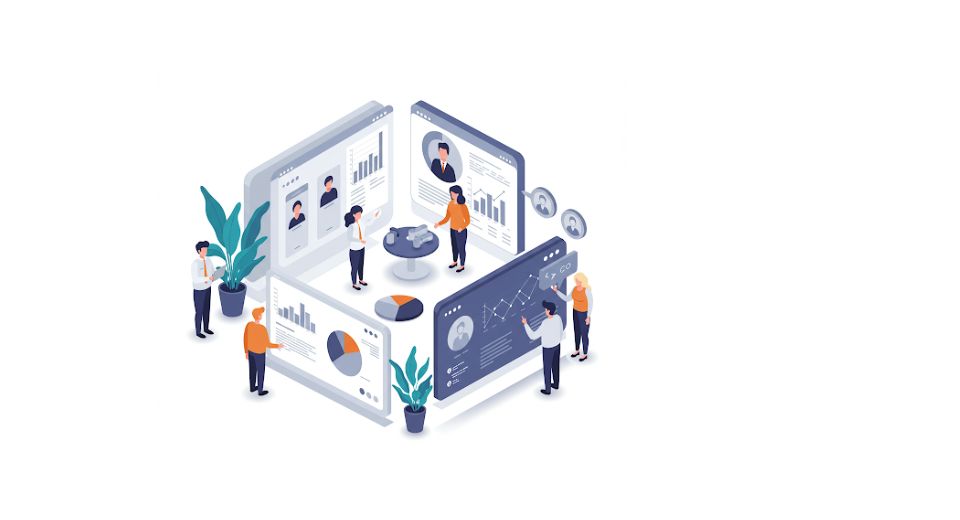
Apr 29, 2025

Recently, Metastat Insight published its latest study highlighting the great expanse of the Global HR Tech Market, which signifies how organizations redefine their engagement with talent, streamline processes, and realign human capital strategies with broader business objectives. As the workplace restructures itself to new expectations, human-resource-centric technologies have taken center stage, not merely as administrative items but as part of decision-making frameworks and employee engagement. The HR technology landscape is evolving-from recruitment, performance management, workforce analytics, to digital onboarding-in tandem with the requirements of business and its people.
At the same time, the massive transformation of technology in human resource management is evident. Old-fashioned systems would have been able to undertake only the most basic tasks. Today's HR platforms offer agility and flexible capabilities. Demonstrable to create customized experiences that align with culture, leadership style, age group, or any other preferences. The ease-of-use and intelligent response of these HR solutions create both a structure and a level of flexibility that understands management is truly far from generic. In essence, these companies can leverage tools for both generally administrative functions and from the standpoint of shaping their culture and internal communications toward evermore organic rather than transactional.
Specific changes have surfaced with the recruitment and talent acquisition processes. Tech-enabled hiring teams manage high volumes of applications without compromising a personalized candidate experience. Efficiency first through automation, with algorithms and data tools allowing hiring professionals to work on the fit, values, and long-term potential. This enhancement to the human touch through HR tech takes away repetitive tasks and surfaces insights that enable recruiters to make considered strategic choices, culminating in a hiring process characterized by speed and substance.
Another notable change relates to how organizations monitor and develop their employees. Learning management systems, career enhancement tools, and feedback mechanisms provide organizations with a means of tracking and nurturing employee growth continuously. Employees are often encouraged to take more active roles in their own development, with platforms suggesting next steps, training resources, or potential projects based on existing skills and goals. These systems foster a conversational atmosphere, allowing for a sort of professional dialogue between the individual and the company, one that emphasizes mutual investment and clarity around expectations.
A proactive approach enables managers to give timely recognition or course corrections before the yearly review, creating a dynamic feedback culture. As such, performance evaluation is witnessing continuous feedback tools coming to replace or complement periodic annual reviews. The immediacy here contributes to agile operations, where teams should be able to align very quickly and adjust without incurring delays that are irrelevant to their work. Such tools enthuse credibility and trust to the maximum because the employees are no longer left wondering about their performance or standing in the organization.
Technology has also influenced compensation and benefits administration. Employees can operate with more independence through self-service portals, managing aspects of their own employment, from tracking leave balances and enrolling for benefits to updating personal information. This lightens the administrative burden on HR teams while giving employees more power. In addition, companies can utilize the usage data collected through these systems to better understand patterns of usage and opportunities for improvement.
Perhaps one of the more nuanced yet fundamentally impactful transformations spurred on by HR technology is its ability to enable organizations to respond with nuance to questions of diversity, equity, and inclusion. While software cannot address these challenges, it can shine a light on imbalances and voids. Analytics give visibility to promotion rates, pay equity, representation, and other relevant trends, thus informing the conversation and action. The tools for equitable hiring and internal mobility continue to develop at a rapid pace in the Global HR Tech Market, with an emphasis on the design intent of HR systems.
Global organizations, especially those navigating multiple regions and time zones, rely on HR tech to unite their people strategies with local responsiveness. Language nuances, legal requirements, and cultural do's and don'ts vary from one place to another, and modern HR platforms allow dynamic capability to operate in each of these landscapes. Leadership can glimpse the global picture through a centralized dashboard, while local teams still have the power to customize processes along particular contextual lines. This synergy maintains cohesion and agility when it comes to managing human capital in any given organization.
According to the evidence cited in the Global HR Tech Market Report, which was produced by Metastat Insight, the HR tech sector is continually shaping the interaction between organizations and their personnel. Far from being just a supportive function, HR technology has risen to a more strategic prominence, assisting organisations in creating environments where people feel connected, supported, and informed. A strong demand for intelligent, intuitive, and responsive HR platforms is bound to persist, as more organisations ponder how to correspond between their goals and the experiences of their employees. Such tools allow companies to not only manage their workforce but to intentionally and mindfully build it, one informed decision at a time.
Drop us an email at:
Call us on:
+1 214 613 5758
+91 73850 57479